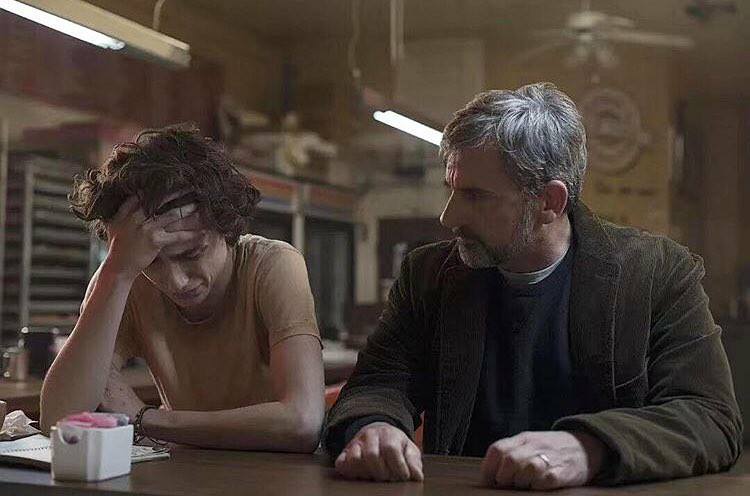Making his cinematic debut last year with his empathic performance in Call Me By Your Name, Timothée Chalamet is back with a further dose of melancholic beauty as Nic Sheff in his latest film, ‘Beautiful Boy’. And it really is beautiful, in several ways. The style in which it is shot, the music to which the film is played, the lighting and undeniably Chalamet himself. But the impulse to write about this film isn’t simply a matter of lust or aesthetic pleasure, its the poignancy of the message conveyed.
What is striking and most impressive about Chalamet’s second cinematic instalment is the portrayal of addiction, for which director Felix Van Groeningen is due credit. Breaking from the distorted, damaging stereotype that has penetrated mainstream social and political narrative, Beautiful Boy traces a brazen story of addiction intwined with talent, intelligence and affluence; basically all that has been separated from the uncivil image of addiction created through the guise of the media. A prime example of fake fucking news.
Based on two relatively brutal memoirs written by father and son, David and Nic Sheff, the film drags the audience through an emotive series of highs and lows, in both a literal and metaphorical sense. Articulating addiction as a disease, the addict as vulnerable and the system as passive, it tells the story of Nic’s destructive battle with crystal meth and his father’s relentless attempts to save him, played by a rather dry Steve Carell.
Of course, addiction isn’t a disease in the same way that say, Tuberculosis is, but it is a condition that “negatively affects the structure or function of part or all of an organism”; crystal meth, or Methamphetamine as it is officially called, affecting the nerve endings of Nic Sheff’s brain. And yes responsibility is a factor, to become addicted there must have a been a series of choices, but the film doesn’t resolve or ignore this, so spare me the conservative criticism.
A particularly clever aspect of the film is the implication of the cost of treatment and rehabilitation programmes. A phone call with the mention of the steep $40,000 price tag, the stealth placing of the credit card on the therapist’s table; all subtly conveying that help of the highest degree is very fucking expensive for some and unaffordable for most.
It may not be Carell’s best performance and perhaps it is slightly overlong. But criticisms of the films repetitive pattern are misguided. Isn’t the point show the audience that rehabilitation is rarely a one time, solve all event. To remind us that sobriety is no mean feat and that it takes a kind of dedication that is perhaps incomprehensible without first-hand experience.
Generally then, what I’m trying to say is that the film is one to watch. It was raw, emotional (reference: woman crying into her popcorn), touching and even funny in parts. But if not for Chalamet’s, dare I say, it oscar winning performance, then for its intelligent articulation of addiction. Because you might say the stigma has been reduced, but it would be completely fucking ridiculous to suggest that it has been erased.
It may be 2018 but the official political narrative resides in shunning the vulnerable and denying many the chance of recovery. At least the cinema is starting to get it right.
Lola Brittain

